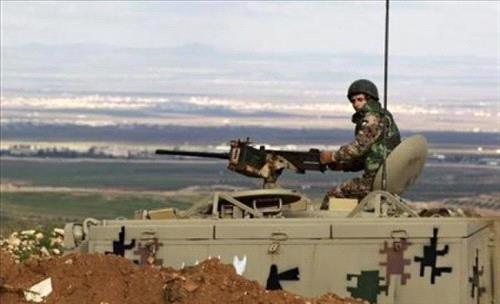-
Top Stories -
Most Popular
-
Energy: Global oil prices drop
-
Amman Stock Exchange closes down
-
MPs choose their leader in a setting that is not isolated
-
Parliament Speaker Elections Begin .. Safadi and Armouti Compete
-
Spain renews its calls for immediate ceasefire in Gaza and Lebanon
-
Gaza: 76 Deaths from Israeli Aggression Reported in One Day
-
Prime Minister's remarks in Senate's initial session discussed
-
85.5 thousand electric vehicles are “licensed and registered” in Jordan
-
Shots from the Throne Speech .. 10 minutes and the audience applauded 14 times (photos)
-
Al-Rifai and Al-Nsour: Senate President deputies. Al-Ali & Abu Fares: assistants
-
Water Ministry launches website for 6th Arab Water Conference
-
Army carries out new humanitarian aid airdrop on southern Gaza
-
King: Attracting foreign investment is a priority for the Jordanian economy
-
King to open first regular session of National Assembly on Monday
-
Melania Trump declines to meet with Jill Biden at White House
-
Bali flights cancelled due to dangerous volcanic ash
-
King inaugurates TRIP at German Jordanian University
-
Prince El Hassan conveys message from King to Japanese PM
-
Celebrating five years reclaiming Baqoura and Ghumar
-
King sends cable to Abbas on anniversary of declaration of Palestinian state’s independence
Aid groups urge Jordan to open border to fleeing Syrians
27-06-2018 11:30 AM
Ammon News - AMMONNEWS - International aid organizations sounded the alarm Wednesday for the fate of thousands of desperate Syrians fleeing the onslaught of President Bashar Assad’s forces in southwestern Syria, urging neighboring countries to take them in. |
- no comments
Ammon News reserves the right to delete any comment at any time, and for any reason, and will not publish any comment containing offense or deviating from the subject at hand, or to include the names of any personalities or to stir up sectarian, sectarian or racial strife, hoping to adhere to a high level of the comments as they express The extent of the progress and culture of Ammon News' visitors, noting that the comments are expressed only by the owners.
| name : * | |
| comment : * | |







 comment replay
comment replay 